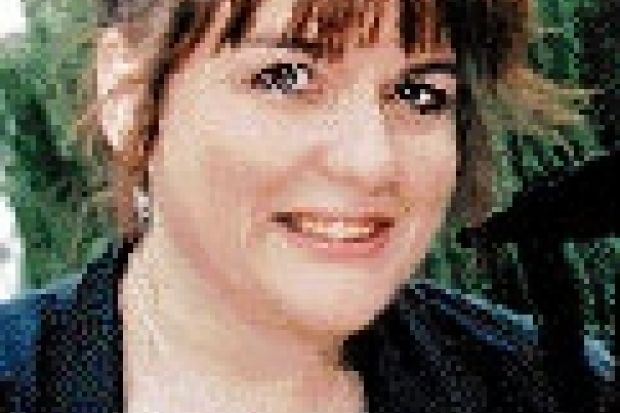Pat Leon watches a lecturer bring immunology alive with rich anecdote
The lecture theatre is packed. Students clamber over seats to take their places. Sweet wrappers rustle, there is a buzz of light banter. The lights dim, voices drop and Lesley-Jane Reynolds, Surrey University's teacher of the year, begins.
"Today we are going to look at applying the basic fundamentals of immunology you've been learning to the clinical disorders that occur when things go wrong," she announces, clicking the formula graphics presentation into action.
Reynolds's style is to fill, with explanation and anecdote, the gaps between the words on the screen up front.
"When the immune system works properly, it protects people; when it doesn't, all sorts of medical problems occur," says Reynolds, who directs undergraduate studies in microbiology, as well as tutoring, researching and sitting on several university boards.
The hundred or so undergraduates are a mix of sexes, ethnicity and undergraduate degree programmes, including biochemistry, microbiology, nutrition and nursing. What they have in common is this compulsory second-year course in immunology.
Reynolds describes the first of the four types of hypersensitive reactions and the autoimmune diseases associated with them. "How many of you suffer from an allergy?" she asks. A few fingers are reticently raised. "How many of you have parents who suffer?" Fewer fingers.
"If both parents suffer, you have a 75 per cent chance of being allergic; if one parent suffers you have a 50 per cent chance. Allergy is part genetically inherited."
She asks the students what things cause an allergic reaction. The responses are pollen, dust, food, and such. "These can produce a massive inflammatory response, everyone knows how frightening an asthma attack can be."
Type one responses occur in seconds, says Reynolds. "I once was with a patient who was receiving an iron infusion.By the time we got her downstairs to the laboratory, she was in anaphylactic shock."
She describes the three other types of response showing on the screen diagrams of cell responses involved before going on to talk about autoimmune diseases in general.
"Autoimmunity is vital to the development of a normal immune response. An autoimmune disease, however, is a breakdown in tolerance: it can be debilitating or fatal.
"I always remember at medical school our professor put up two pictures. One was a Raquel Welch lookalike, the other was an old man in a wheelchair. He asked us what was the difference between them. Some bright spark answered: 'One's a man and one's a woman.' He's destined to be a gynaecologist, I thought. The answer was that the woman was much more likely to suffer from an autoimmune disease, such as rheumatoid arthritis, because of her hormones, while the man would suffer from osteoarthritis caused by wear and tear. The sex link can be dramatic - when a woman is pregnant, her symptoms may completely disappear. However, within minutes of giving birth, they appear again."
Many factors affect the autoimmune system, says Reynolds, "genes, hormones, stress and neurochemicals, pharmaceuticals and microbes. Take stress: a patient in Germany had split up from her boyfriend. She was very upset. That night she fell and hit her head. Next day she woke up blind. She had an underlying condition - multiple sclerosis - and the shock and stress had brought it on. Blindness is often the first symptom of onset."
It is this mixture of anecdote and science that appeals to her students. Riddhi, a second-year medical biochemistry student, says: "I find the lectures always clear and to the point. You get notes after so you can concentrate on what is being said."
At the end, a group of young women cluster around Reynolds at the front with questions. Reynolds, who is an extremely popular tutor and project supervisor, says: "It is always difficult with these large group, compulsory lecture courses. There's always a bit of talking and students are shy to answer questions. But I always wanted to teach. I always remember what one of my professors said: 'What good is all the wisdom in the world if you do not know how to communicate it to the generation beyond you.'"
Register to continue
Why register?
- Registration is free and only takes a moment
- Once registered, you can read 3 articles a month
- Sign up for our newsletter
Subscribe
Or subscribe for unlimited access to:
- Unlimited access to news, views, insights & reviews
- Digital editions
- Digital access to THE’s university and college rankings analysis
Already registered or a current subscriber?
